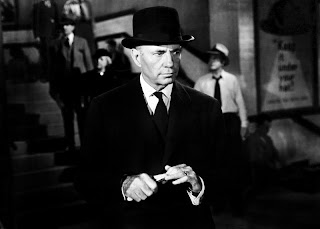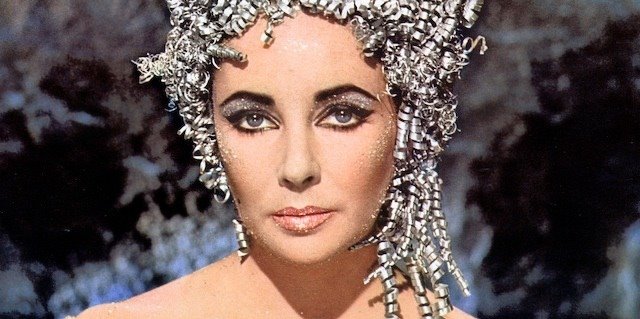–Los alemanes son una maravilla, no dejan nada incompleto –comentó Johns–. Eso lo hicieron en su país. Ficharon a todos los supuestos dirigentes, a personajes sociales, a diplomáticos, políticos, líderes obreros, sacerdotes... y luego presentaron el ultimátum. Todo perdonado y olvidado, o el Juicio Público. No me sorprendería que hubieran hecho lo mismo aquí. Formaron, ¿sabe usted?, una especie de Ministerio del Miedo... con los más hábiles subsecretarios. No solamente dominan a ciertas personas. Crean una atmósfera general en la cual cada uno tiene la impresión de no poder confiar en alma viviente.
.
(Graham Greene, El Ministerio Del Miedo)
. . .
.

"Although I don't know Graham Greene personally, he is one of my favorite writers, and I wanted very much to make a film from his 'entertainment' novel, Ministry Of Fear. Accordingly, I instructed to my agent to try to buy it for me, but he declared it was impossible because Paramount, who were also interested in the book, were outbidding us.
 Then I went to New York, and one day I reveived a cable from my agent containing an offer to make Ministry Of Fear for Paramount. I jumped at it, but made a great mistake by not specifying in my contract that i wanted to be able to work on the script; I took it for granted, after all the years I'd been accustomed to working on scripts, that my agent would have seen to it that the contract contained some such clause.
Then I went to New York, and one day I reveived a cable from my agent containing an offer to make Ministry Of Fear for Paramount. I jumped at it, but made a great mistake by not specifying in my contract that i wanted to be able to work on the script; I took it for granted, after all the years I'd been accustomed to working on scripts, that my agent would have seen to it that the contract contained some such clause.
 Then I went to New York, and one day I reveived a cable from my agent containing an offer to make Ministry Of Fear for Paramount. I jumped at it, but made a great mistake by not specifying in my contract that i wanted to be able to work on the script; I took it for granted, after all the years I'd been accustomed to working on scripts, that my agent would have seen to it that the contract contained some such clause.
Then I went to New York, and one day I reveived a cable from my agent containing an offer to make Ministry Of Fear for Paramount. I jumped at it, but made a great mistake by not specifying in my contract that i wanted to be able to work on the script; I took it for granted, after all the years I'd been accustomed to working on scripts, that my agent would have seen to it that the contract contained some such clause.
While I don't care Ministry Of Fear as a whole, there are still some things in it that I like it: the seance, for instance, in which Hillary Brooke was very good, and the performances of Marjorie Reynolds and Dan Duryea. He was excellent, I thought, in the scissor-stabbing scene, which was my own invention and not in the book. I like, too, the performance of the English actor, Percy Waram as the police inspector."
.
(FRITZ LANG)
. . .
.







.png)
























































5 comentarios:
¡Qué grandes pelis nos dejó Lang!
Su filmografía es una auténtica maravilla, es el fiel reflejo de su genialidad y de su capacidad para adaptarse a los cambios tecnológicos y narrativos sin perder un ápice de calidad ni de personalidad en su obra.
Buena selección de planos para tu entrada.
Un abrazo.
Pues esta no la he visto. A ver si la dan en el ciclo.
Pasa buen fin de semana (a mí me toca trabajar).
PD: Y aún no me has aclarado lo del "montaje" del Guggen.
Esta peli si que es de las mías. Es de las que no cumplen años, y eso no sé yo si será bueno para este puto mundo, que no hay manera de que cambie. ¿o si?
Una obra maestra y con Dan Duryea, uno de mis secundarios preferidos aunque de su trilogía de películas anti nazis sigo prefiriendo "Hombre atrapado". Saludos. Borgo.
He estado dudando entre película notable o película muy buena, finalmente me he decidido por esta última puntuación debido a dos características:
1.-Cómo prácticamente sin medios, con interiores y escenas de estudio se hace una película de interés creciente que nos transporta a un Londres sucio, de paredes medio derruidas que huele a guerra.
2.-El poder de sugestión de algunas escenas: el péndulo del reloj, la sesión de espiritismo con una voz en off que produce espanto y toda la escena del ciego, ese ciego "de pega" que el espectador descubre con horror mientras nuestro protagonista lo ignora.
Al parecer fue una película en la que no se dejó a Fritz Lang moldearla a su gusto....una lástima, hablariamos entonces de una obra maestra.
SUSI LENOX.
Publicar un comentario